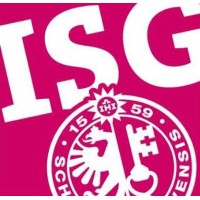Company Details
institute-of-global-health-unige
None employees
835
92312
unige.ch
0
INS_7847086
In-progress

Institute of Global Health - UNIGE Company CyberSecurity Posture
unige.chThe Institute of Global Health (ISG) was founded in January 2014 as a transformation of the former Institute of Social and Preventive Medicine. This transformation was decided by the University of Geneva as a continuation of efforts to develop academic global health given the unique location of Geneva in the field. Geneva hosts most of the major actors of global health: the World Health Organization, UNAIDS, the Global Fund to fight AIDS, Tuberculosis and Malaria, ICRC, GAVI, FIND, MSF and many other NGOs and foundations, with diplomatic permanent UN representations for more than 140 countries. The creation of the Institute of Global Health was inspired by a shared commitment to foster academic Global Health at the Faculty of Medicine of the University of Geneva. It is located in the facilities of Campus Biotech shared by the University of Geneva and Ecole Polytechnique Fédérale de Lausanne (EPFL).
Company Details
institute-of-global-health-unige
None employees
835
92312
unige.ch
0
INS_7847086
In-progress
Between 750 and 799

 IGHU Global Score (TPRM)
IGHU Global Score (TPRM)XXXX



No incidents recorded for Institute of Global Health - UNIGE in 2025.
No incidents recorded for Institute of Global Health - UNIGE in 2025.
No incidents recorded for Institute of Global Health - UNIGE in 2025.
IGHU cyber incidents detection timeline including parent company and subsidiaries

The Institute of Global Health (ISG) was founded in January 2014 as a transformation of the former Institute of Social and Preventive Medicine. This transformation was decided by the University of Geneva as a continuation of efforts to develop academic global health given the unique location of Geneva in the field. Geneva hosts most of the major actors of global health: the World Health Organization, UNAIDS, the Global Fund to fight AIDS, Tuberculosis and Malaria, ICRC, GAVI, FIND, MSF and many other NGOs and foundations, with diplomatic permanent UN representations for more than 140 countries. The creation of the Institute of Global Health was inspired by a shared commitment to foster academic Global Health at the Faculty of Medicine of the University of Geneva. It is located in the facilities of Campus Biotech shared by the University of Geneva and Ecole Polytechnique Fédérale de Lausanne (EPFL).


King’s College London is amongst the top 40 universities in the world and top 10 in Europe (THE World University Rankings 2024), and one of England’s oldest and most prestigious universities. With an outstanding reputation for world-class teaching and cutting-edge research, King’s maintained its si

At Utrecht University (UU), we are working towards a better world. We do this by researching complex issues beyond the borders of disciplines. We put thinkers in contact with doers, so new insights can be applied. We give students the space to develop themselves. In so doing, we make substantial con
The PPD clinical research business of Thermo Fisher Scientific, the world leader in serving science, enables customers to accelerate innovation and drug development through patient-centered strategies and data analytics. Our services, which span multiple therapeutic areas, include early development,

The Chinese Academy of Sciences (CAS) is the lead national scientific institution in natural sciences and high technology development in China and the country's supreme scientific advisory body. It incorporates three major parts: a comprehensive research and development network consisting of 104 res

The University of Cambridge is one of the world's foremost research universities. The University is made up of 31 Colleges and over 150 departments, faculties, schools and other institutions. Its mission is 'to contribute to society through the pursuit of education, learning, and research at the hi

The French National Centre for Scientific Research is among the world's leading research institutions. Its scientists explore the living world, matter, the Universe, and the functioning of human societies in order to meet the major challenges of today and tomorrow. Internationally recognised for the
.png)
Third Win After 2022 and 2023 Recognition. SINGAPORE, Nov. 28, 2025 /PRNewswire/ — Ensign InfoSecurity, Asia Pacific's largest pure-play,...
Rhode Island Emergency Management Agency said its CodeRED notification system is down after a national cybersecurity incident.
ServiceNow Inc. is reportedly in advanced talks to acquire Veza Inc., a startup with an identity management platform of the same name.
A 15-year-old known online as “Rey” has been allegedly identified as a key figure in Scattered LAPSUS$ Hunters (SLSH), a hacking group said...
Thinking about whether Palo Alto Networks is a buy right now? If you have even a hint of curiosity about the stock's value,...
By Juliet ETEFE ([email protected]) Virtual Infosec Africa (VIA), in partnership with global cybersecurity firm Exabeam, has launched Ghana's...
Mohit Chawla, Deputy Inspector General (DIG) of Himachal Pradesh Police, has been honoured with the Chief Information Security Officer...
This list of curated articles highlights cybersecurity incidents affecting Pierce County. They emphasize vulnerabilities and breaches that...
CINCINNATI (WXIX) -As Black Friday weekend approaches, cybersecurity experts are warning shoppers about increased online scams targeting...

Explore insights on cybersecurity incidents, risk posture, and Rankiteo's assessments.
The official website of Institute of Global Health - UNIGE is https://www.unige.ch/medecine/isg/.
According to Rankiteo, Institute of Global Health - UNIGE’s AI-generated cybersecurity score is 762, reflecting their Fair security posture.
According to Rankiteo, Institute of Global Health - UNIGE currently holds 0 security badges, indicating that no recognized compliance certifications are currently verified for the organization.
According to Rankiteo, Institute of Global Health - UNIGE is not certified under SOC 2 Type 1.
According to Rankiteo, Institute of Global Health - UNIGE does not hold a SOC 2 Type 2 certification.
According to Rankiteo, Institute of Global Health - UNIGE is not listed as GDPR compliant.
According to Rankiteo, Institute of Global Health - UNIGE does not currently maintain PCI DSS compliance.
According to Rankiteo, Institute of Global Health - UNIGE is not compliant with HIPAA regulations.
According to Rankiteo,Institute of Global Health - UNIGE is not certified under ISO 27001, indicating the absence of a formally recognized information security management framework.
Institute of Global Health - UNIGE operates primarily in the Public Health industry.
Institute of Global Health - UNIGE employs approximately None employees people worldwide.
Institute of Global Health - UNIGE presently has no subsidiaries across any sectors.
Institute of Global Health - UNIGE’s official LinkedIn profile has approximately 835 followers.
Institute of Global Health - UNIGE is classified under the NAICS code 92312, which corresponds to Administration of Public Health Programs.
No, Institute of Global Health - UNIGE does not have a profile on Crunchbase.
Yes, Institute of Global Health - UNIGE maintains an official LinkedIn profile, which is actively utilized for branding and talent engagement, which can be accessed here: https://www.linkedin.com/company/institute-of-global-health-unige.
As of November 28, 2025, Rankiteo reports that Institute of Global Health - UNIGE has not experienced any cybersecurity incidents.
Institute of Global Health - UNIGE has an estimated 280 peer or competitor companies worldwide.
Total Incidents: According to Rankiteo, Institute of Global Health - UNIGE has faced 0 incidents in the past.
Incident Types: The types of cybersecurity incidents that have occurred include .
.png)
Angular is a development platform for building mobile and desktop web applications using TypeScript/JavaScript and other languages. Prior to versions 19.2.16, 20.3.14, and 21.0.1, there is a XSRF token leakage via protocol-relative URLs in angular HTTP clients. The vulnerability is a Credential Leak by App Logic that leads to the unauthorized disclosure of the Cross-Site Request Forgery (XSRF) token to an attacker-controlled domain. Angular's HttpClient has a built-in XSRF protection mechanism that works by checking if a request URL starts with a protocol (http:// or https://) to determine if it is cross-origin. If the URL starts with protocol-relative URL (//), it is incorrectly treated as a same-origin request, and the XSRF token is automatically added to the X-XSRF-TOKEN header. This issue has been patched in versions 19.2.16, 20.3.14, and 21.0.1. A workaround for this issue involves avoiding using protocol-relative URLs (URLs starting with //) in HttpClient requests. All backend communication URLs should be hardcoded as relative paths (starting with a single /) or fully qualified, trusted absolute URLs.
Forge (also called `node-forge`) is a native implementation of Transport Layer Security in JavaScript. An Uncontrolled Recursion vulnerability in node-forge versions 1.3.1 and below enables remote, unauthenticated attackers to craft deep ASN.1 structures that trigger unbounded recursive parsing. This leads to a Denial-of-Service (DoS) via stack exhaustion when parsing untrusted DER inputs. This issue has been patched in version 1.3.2.
Forge (also called `node-forge`) is a native implementation of Transport Layer Security in JavaScript. An Integer Overflow vulnerability in node-forge versions 1.3.1 and below enables remote, unauthenticated attackers to craft ASN.1 structures containing OIDs with oversized arcs. These arcs may be decoded as smaller, trusted OIDs due to 32-bit bitwise truncation, enabling the bypass of downstream OID-based security decisions. This issue has been patched in version 1.3.2.
Suricata is a network IDS, IPS and NSM engine developed by the OISF (Open Information Security Foundation) and the Suricata community. Prior to versions 7.0.13 and 8.0.2, working with large buffers in Lua scripts can lead to a stack overflow. Users of Lua rules and output scripts may be affected when working with large buffers. This includes a rule passing a large buffer to a Lua script. This issue has been patched in versions 7.0.13 and 8.0.2. A workaround for this issue involves disabling Lua rules and output scripts, or making sure limits, such as stream.depth.reassembly and HTTP response body limits (response-body-limit), are set to less than half the stack size.
Suricata is a network IDS, IPS and NSM engine developed by the OISF (Open Information Security Foundation) and the Suricata community. In versions from 8.0.0 to before 8.0.2, a NULL dereference can occur when the entropy keyword is used in conjunction with base64_data. This issue has been patched in version 8.0.2. A workaround involves disabling rules that use entropy in conjunction with base64_data.

Get company history
















Every week, Rankiteo analyzes billions of signals to give organizations a sharper, faster view of emerging risks. With deeper, more actionable intelligence at their fingertips, security teams can outpace threat actors, respond instantly to Zero-Day attacks, and dramatically shrink their risk exposure window.
Identify exposed access points, detect misconfigured SSL certificates, and uncover vulnerabilities across the network infrastructure.
Gain visibility into the software components used within an organization to detect vulnerabilities, manage risk, and ensure supply chain security.
Monitor and manage all IT assets and their configurations to ensure accurate, real-time visibility across the company's technology environment.
Leverage real-time insights on active threats, malware campaigns, and emerging vulnerabilities to proactively defend against evolving cyberattacks.




